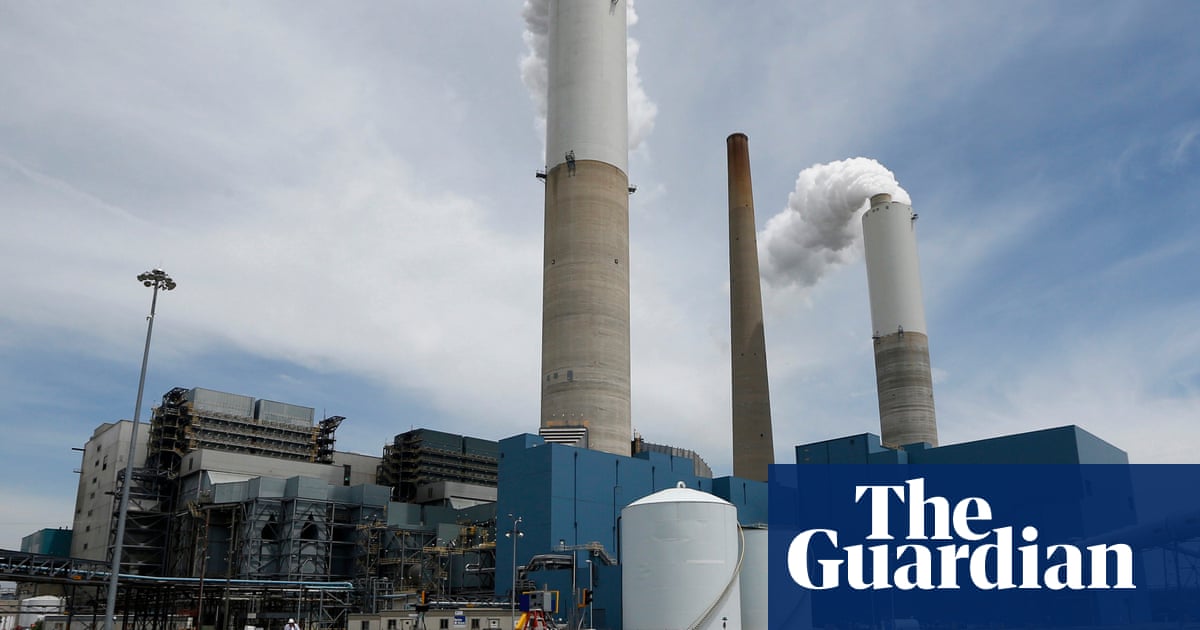Environmental Setbacks Across the U.S.: A Closer Look
On a day that resonated with alarm bells for environmentalists and advocates of clean energy, significant developments unfolded across the United States. The Trump administration’s recent actions to keep two coal plants operational in Michigan, coupled with a U.S. Supreme Court ruling favoring fossil fuel companies, left many questioning the future of clean air and climate policy.
Coal Plants Extended: The JH Campbell and Monroe Power Plants
The U.S. Department of Energy (DoE) made waves by ordering the JH Campbell coal plant, situated on the scenic shores of Lake Michigan, to extend its operational life beyond a scheduled closure on May 31. In a similar vein, expectations are mounting that the Monroe power plant, located on Lake Erie and slated to close in 2028, will also be allowed to keep its doors open longer than initially planned. Together, these plants account for a staggering 45% of Michigan’s greenhouse gas emissions, raising concerns among environmentalists and the public alike.
Stakeholder Reactions
Opposition has been swift and vocal. Critics argue that this decision lacks local backing and could impose significant financial burdens on Michigan ratepayers—potentially costing hundreds of millions of dollars. Leadership from Michigan’s utilities indicated they did not advocate for the continued operation of these plants. Notably, the Michigan Public Service Commission—a critical regulatory body overseeing utilities and the state’s energy grid—expressed frustration over the administration’s failure to communicate with stakeholders prior to the order.
Supreme Court Ruling: A Setback for California’s Emission Standards
In a parallel story, the U.S. Supreme Court handed fossil fuel companies a significant victory by ruling in favor of their challenge against California’s authority to implement stricter vehicle emission standards. This decision poses a serious threat to one of the nation’s foremost tools for combating climate change and reducing greenhouse gas emissions.
The conservative-leaning court ruled 7-2, siding with oil and gas companies, along with the backing of 17 Republican-led states. This ruling challenges a waiver that has allowed California to set tougher emission regulations than those mandated at the federal level since 1967. With public health and environmental experts warning of the repercussions, many are concerned this legal outcome will unravel years of progress in emission reductions.
Implications for Future Environmental Policies
California’s emission standards have often served as a model for other states and even influenced federal policies. By undermining this regulatory framework, the Supreme Court’s ruling may affect not only California’s air quality but ripple across state lines, stalling comprehensive national efforts aimed at reducing pollution from vehicles.
Other Noteworthy Headlines
Amidst these environmental developments, several other news stories caught public attention:
-
Mahmoud Khalil’s Release from ICE Detention: Activist and Columbia University graduate Mahmoud Khalil was finally released from U.S. immigration detention after a federal judge ruled he posed no flight risk or danger to the community. Khalil had been detained for over three months due to his activism against Israel’s actions in Gaza.
-
Teen Soccer Star Deported: In a tragic turn of events, 19-year-old soccer standout Emerson Colindres was arrested and deported to Honduras just days after graduating high school in Ohio. His family reported that he had no criminal record and was attending a scheduled immigration appointment when he was detained.
-
California vs. Trump Administration Troop Deployment: California’s legal battle against the Trump administration’s military deployment in Los Angeles returned to court. This case follows a significant procedural win for Trump, underscoring ongoing tensions between state and federal powers.
- Trump’s Juneteenth Remarks: President Trump faced criticism for his lack of acknowledgment of Juneteenth. Acknowledging the holiday only the day before, he remarked that there were "too many non-working holidays" in America.
As these stories unfold, they illustrate the complexities of environmental policy, legal challenges, and social justice in today’s America. Observers continue to watch closely as the implications of these decisions affect both local communities and national standards.


